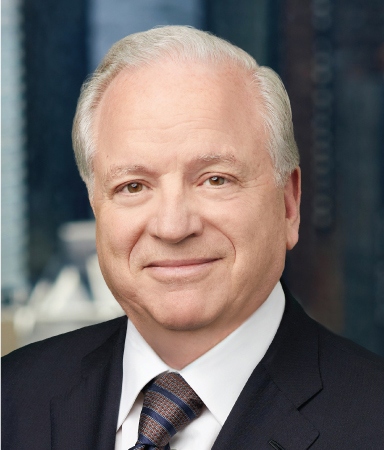The previous year was certainly difficult and out of the ordinary for everyone as the economy experienced unpredictable ups and downs, as well as unique challenges. So, looking toward the rest of this year and beyond, CommercialCafe asked commercial real estate brokers and industry experts to share their thoughts on long-term tenant behavior. Specifically, we asked them what tenants need in terms of office density; if they’ve noticed any changes in preferred lease terms; and their perspectives on interest in commercial properties in suburban markets.
Meet our Experts

Steve Avanzino
Commercial Real Estate Broker at Lee & Associates in Nevada

Chad Bermingham
Vice President of the Chicago Office at Avison Young

Marc J. Civitillo
Managing Director of Acquisitions at SkyREM

Matt Kaushal
Executive Vice President of Real Estate at Tutera Real Estate

Rawly Lantz
Principal at Cawley Chicago

Michael Silver
Chairman of Vestian

Jeff Taylor
Senior Vice President of Real Estate at Tutera Real Estate

Galit Ventura-Rozen
Broker & Owner at Commercial Professionals, Inc.
Are commercial tenants considering/planning for a long-term reduction in office density?
Chad Bermingham
“Yes, I believe most office tenants will allow their staff to work from home one to three days a week going forward, so it will no longer be necessary to have a permanent seat for every staff member. There will be fewer workstations, and offices will be more spread out, allowing more room for lounge areas and meeting spaces for collaboration.”
Marc J. Civitillo
“We have seen some tenants consider space reduction. However, we have been successful in retaining existing tenants at their current footprint in exchange for more favorable lease terms (for the tenant), such as lower rents, shorter term, etc.”
Matt Kaushal
“Some tenants are considering the density implications of their office space, but the trend of open-concept and collaborative workplaces are still desired to allow the maximum flexibility for office employees.”
Rawly Lantz
“I see commercial tenants currently planning for a whole host of different scenarios. One option among many is some density-reduction planning.”
Michael Silver
“Some — a minority — are considering a slight decrease in density. This is somewhere in the area of 15-20% increase in space per person.”
Jeff Taylor
“I feel that office tenants are talking/thinking about possible reductions, but not really committed to it yet. It feels to me that prospective tenants are using this tactic to negotiate better terms for their future space needs.”
Galit Ventura-Rozen
“I am seeing in our local Las Vegas market companies that are downsizing with employees working at home and, having success with this transition, they are realizing that their company can downsize their office space to a minimal size to operate with many — if not all — employees working from home. Many companies, at this time, are operating at 30% or less capacity in their office space because of COVID, and some [are] even requiring those that prefer working from the office make a reservation to go into the office — up to a week prior to going in.”
For the commercial tenants that have considered long-term reduction in office density, which of the following strategies has been most appealing?
(A) Keep the existing footprint and transition most of the workforce to remote, or
(B) Plan for an increase in office square footage to eventually accommodate more of the workforce back in the office?
Chad Bermingham
“Option A. However, most of the workforce won’t be remote all of the time. They will be remote one to three days a week, as I mentioned above.”
Marc J. Civitillo
“Most of our tenants believe that the majority of their workforce will return to their offices once it is safe to do so.”
Matt Kaushal
“The consideration for maintaining or expanding office space for businesses is still being determined. At the initial stages of the pandemic and work-from-home initiatives, employers found that their workforce productivity was unaffected. But, as the duration of remote working has continued, market reports have been published with data that show companies have seen productivity start to decrease, primarily with their millennial workforce.”
Rawly Lantz
“I am currently seeing more planning for (A) than (B), but my overall sense is that tenants are still generally undecided on what path makes the most sense in the longer term. There seems to be a vast difference of opinion depending upon what business sector the tenants are in. Technology companies, for example, seem to be a lot more willing to embrace the remote workforce than other types of industries.”
Galit Ventura-Rozen
“A) Keep existing footprint and turn most of the workforce remote. This is a combination of employees working from home because of COVID — and also recognizing they can work from home efficiently — and employers realizing the same, as well as the opportunity to save on rent and downsize.”
Have there been any notable changes in preferred lease terms, either for tenants or landlords?
Chad Bermingham
“For tenants, there has been a change in that they prefer shorter lease terms or a long lease term with option(s) to terminate mid-way or periodically through the lease. Landlords will always want longer-term leases with good credit tenants because the long-term rent revenue determines the value of the building. However, landlords will be required to adjust to tenants’ needs in the foreseeable future. This may change in the long-term.”
Marc J. Civitillo
“Market rents will decrease or stay stagnate for new and renewal leases executed in 2021. We have also seen tenants requesting shorter-term leases due to the uncertainty of the next year or two as it relates to the economy. We believe tenants/office-occupiers will see this time as an opportunity to negotiate the most favorable terms to lower their occupancy costs.”
Matt Kaushal
“For new leasing, there has not been a notable change in deal terms or concessions, as the real estate industry usually is a lagging indicator on market economics due to long-term lease contracts. But, for many existing occupiers of real estate, they have been more inclined to execute shorter-term renewals for the next year or two while they determine their long-term strategy.”
Rawly Lantz
“Within the last 10 months, flexibility has been key for most tenants, with most landlords willing to capitulate in short term. However, I’m still seeing a few tenants willing to lock in rates for longer five- to seven-year lease terms.”
Michael Silver
“The new normal is one- to three-year lease terms. Previously, there were five- to 10-year lease terms.”
Jeff Taylor
“Prospective tenants that are shopping the office market are seeking reduced rates and using the pandemic as a negotiating tool. I don’t believe landlords are yet accepting that tactic.”
Galit Ventura-Rozen
“As a company that also does commercial property management, I have seen many negotiations on behalf of the tenant asking the landlord to get out of their lease for a settled amount or asking for a rent reduction. At the same time, I have represented tenants since COVID [began] that are leasing new space. Regarding terms, I am still seeing the three- to five-year windows for most, with some asking for just one year, depending on the size of the company or if they are new to opening an office.”
Has there been a notable increase in interest for commercial properties in suburban markets due to COVID-19 long-term considerations? (Commercial tenants looking to either move or expand their urban footprint.)
Steve Avanzino
“While the pandemic has negatively impacted many areas of the commercial real estate market, the e-commerce business has experienced an increase in volume, as well as the logistics/distribution properties. This increase in business has helped decrease vacancies in industrial inventory. Industrial property owners in Nevada have benefited from individuals staying home and ordering supplies online.”
Chad Bermingham
“There has not been an increase in demand in the suburban market in Chicago, although this could change once people start returning to the office and expressing concern over being located in a congested high-rise. And, as I said earlier, I don’t believe tenants will be expanding their footprint. They will be reducing their footprint and using their office space for collaboration and meetings, instead of day-to-day, heads-down work.”
Marc J. Civitillo
“The majority of Sky’s office portfolio is located in the suburbs and we have not seen an uptick in demand for suburban office space at this time. However, we believe the suburban office market fundamentals will stabilize and recover from the ‘pandemic effects’ faster than the urban markets.”
Matt Kaushal
“I think, from an industry perspective, there has been a slight increase in suburban office due to employees moving further from a CBD [central business district] or business core in their market over the last year of rotational office work and remote work.”
Rawly Lantz
“I’ve noticed a slight increase in overall leasing activity in the suburban market. But, to this point, I have not seen many urban tenants looking to expand their suburban footprint.”
Michael Silver
“Not a notable increase in tenants wanting to relocate from the city to the suburbs currently. There is a notable increase in landlords seeking and buying suburban office buildings. These buyers think there’ll be more interest for tenants seeking space in the suburbs compared to [the] city. However, tenants are now in a holding pattern for office space commitments.”
Galit Ventura-Rozen
“I can only share regarding Las Vegas and we have an influx of companies’ moving here from California and taking advantage of the tax breaks while their employees can work remotely and possibly live in California.”
If you found this article useful and informative, please feel free to check out our Expert Insights & Roundup Series.




[…] See the Full Commercial Real Estate Experts Outlook 2021 Post […]
[…] See the Full Commercial Real Estate Experts Outlook 2021 Post […]
[…] See the Full Commercial Real Estate Experts Outlook 2021 Post […]
[…] See the Full Industrial Real Estate Expert Outlook […]